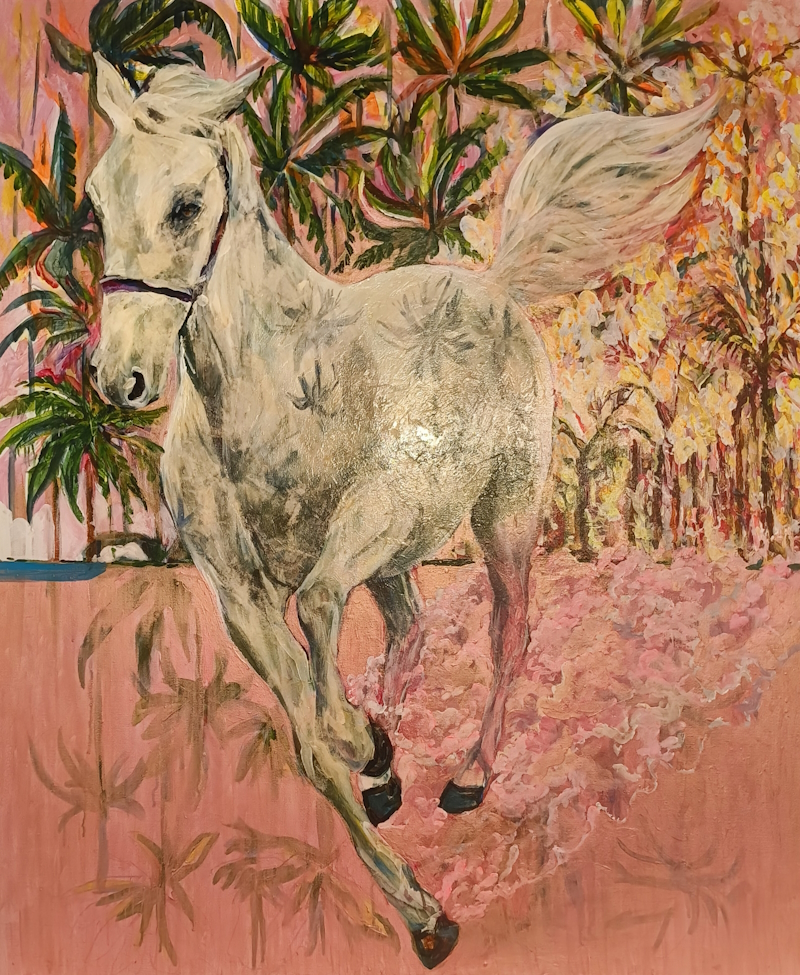

If Paradise is Burning captures a powerful moment of both beauty and destruction, as a white horse gallops through a surreal landscape where the very paradise it inhabits is on the brink of ruin. The horse, vibrant and free, strides across a bed of pink petals, symbolizing grace, beauty, and the fleeting nature of idealized freedom. However, in the background, palm trees burn—an ominous and stark contrast to the serenity of the horse’s movement. Their flames consume the once-idyllic paradise, hinting at the fragility of paradise and how quickly it can be destroyed.
The burning palm trees serve as a symbol of environmental destruction, the consequences of human actions, and the inevitable decline of what we deem perfect. Their fire could represent a variety of global crises—climate change, the erosion of beauty, or even societal collapse—reminding us that paradise is not everlasting and is vulnerable to the forces of nature or our own recklessness. The horse’s gallop, however, remains energetic and defiant, symbolizing both a desire to escape this destruction and an acknowledgment that, no matter how much we wish to flee, we cannot escape the consequences of the world around us.
Through If Paradise is Burning, Vandamme explores the tension between the illusion of paradise and the harsh reality of its fragility. It is a poignant commentary on the beauty we strive to preserve and the destruction that often looms on the horizon, asking whether we can hold on to paradise before it slips away in flames.